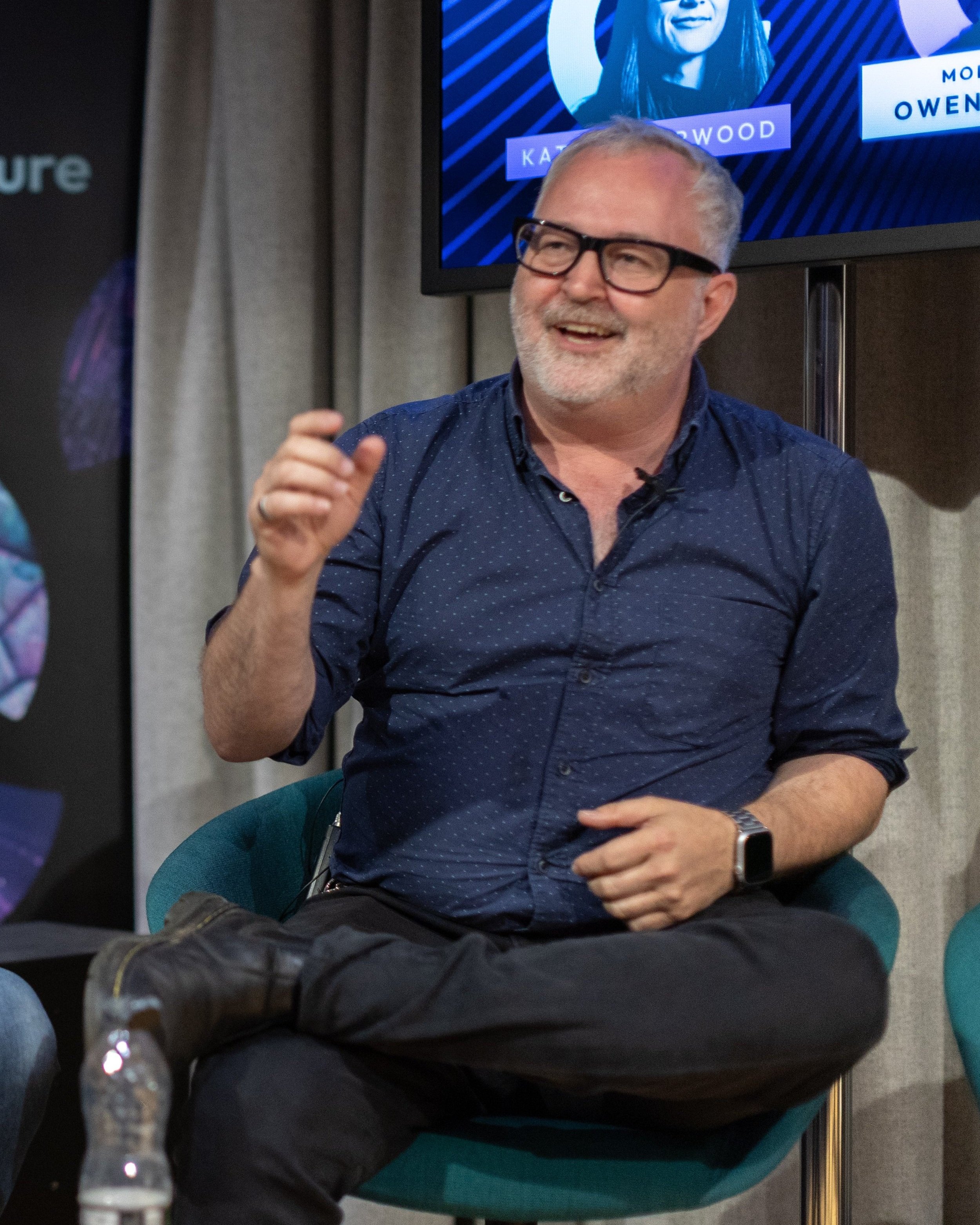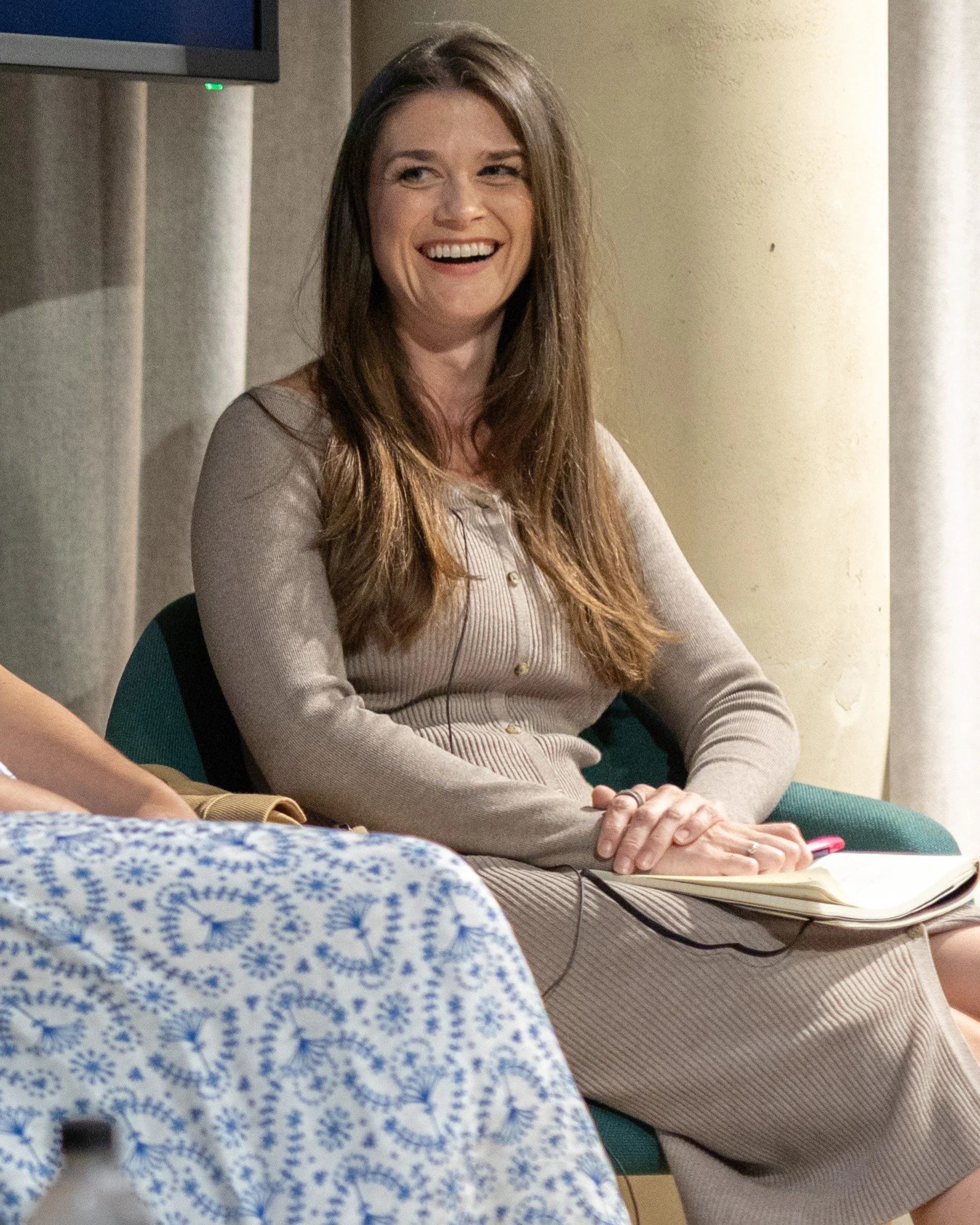Where does UK deep tech go from here?
Reflections from the CFT summer panel
Moderated by CFT CEO Owen Thompson, where does UK deep tech go from here? brought together voices from across the deep tech and investment landscape: tech journalist Mike Butcher, early-stage investor Isabel Fox, venture partner Michael Jackson, Katie Underwood, Partner at Cambridge Future Tech, and Chris Wiles, Director at Foresight Group.
The panel explored how the UK can better support early-stage ventures - from bridging regional gaps and university spinouts, to upcoming tech trends and the evolving relationship between founders and investors. Here’s what we learned.
What is deep tech?
The panel started by trying to pin down what “deep tech” actually means. As Chris Wiles noted, it’s sometimes easier to describe what it isn’t, but a few common threads emerged:
IP or innovation: deep tech means commercialising something new, or pulling together a new combination of existing research or technology. It’s more than just new applications for existing products
Big transformation: deep tech transforms markets and creates new ones, making things orders of magnitude better, faster, cheaper
Software and AI are fundamental: software and AI are essential to deep tech innovation. AI isn’t a differentiator, it’s an expected part of the package
The discussion moved naturally into how AI is reshaping the investment space. Isabel Fox said AI tech tools are fundamentally changing how VC firms are run - they can now operate with tiny team sizes, even just one individual. Mike Butcher put his thoughts more bluntly: “I don’t think you’re in tech if you’re not employing AI”. Chris illustrated the shift: technology firms once said of themselves, ‘we’re an internet company,’ but now the internet is so ubiquitous that such a statement is absurd. It’s only a matter of time before AI will be in the bedrock of business and tech too.
“Soon, saying you’re an AI company will sound as outdated as saying you’re an internet company.” - Chris Wiles
Regional differences: UK, US, and beyond
The panel also looked at the opportunities and difficulties of working with deep tech ventures and prospective investors across the UK, the US and the European markets.
Katie highlighted that the US VC culture moves faster, making the US attractive as a place to grow early-stage ventures. The Delaware Flip - setting up a company in the US to access that market - is very tempting for UK-based founders. In order to compete the UK will need to improve access to capital and become more dynamic.
Isabel made the case for the strength of UK ventures and research which, in her view, is every bit as high, if not higher, than in the US. The issue is not the availability of innovation or IP, its commercialisation: the UK must do better at turning research into successful companies.
“The sheer amount of research and talent out of Europe is just unparalleled” - Isabel
Mike agreed and predicted that the next wave of advanced tech will come out of the UK. What this market lacks in size compared to the US or China, it more than makes up for in talent and available research. However, the rising importance of sovereign tech in the current, rapidly-changing geopolitical climate, means collaboration may be limited, especially with continental European partners.
“...sovereign technology is going to become much, much more important.” - Mike
Another issue, in Chris’s view even more significant than capital availability, is the potential for culture clash between the US and the UK. Expectations of investors and founders alike can be misaligned, which means confusion and problems for all parties involved.
“You do sometimes see CEOs that love the title of CEO [but don’t] deeply understand how hard you have to hustle…” - Chris
The role of universities and TTOs
Michael Jackson, contributing remotely, threw a challenge into the mix: universities should take only a single-digit equity stake in spinouts - and tech transfer offices (TTOs) may be more of a hindrance than a help.
Chris reflected on his early experience where a university took 50% - a level so high it affected talent retention. He conceded that, since deep tech ventures are often built on generations of academic work nurtured by universities, those institutions should have meaningful equity. But that equity needs to be balanced to avoid stifling growth.
“My first venture, the university took 50%. You can’t keep talent with that structure.”
Katie shared CFT’s view from the frontlines: the team have had to work hard to educate academic institutions in the UK about the impact of their policies. Like Chris, she wouldn’t necessarily advocate single digits, but the massive discrepancies between institutions mean that CFT is simply unable to work with some. If terms are too rigid, everyone loses out.
“There is a indiscrepancy between universities. It means that we, as a venture builder, can spin out some technologies from some universities — and not from others. That isn’t fair, because those founders, those technologies that could make massive market impact, just won’t exist. That’s not right.” - Katie
Isabel framed the issue in stark terms: it’s a choice of a spinout with low levels of institutional equity, or no spinout at all, and that’s a loss for everyone involved.
“I’ve seen some really great research but I don’t have an a year to waste fighting with a tech transfer office.”
Mike added that the media aren’t interested in institutional affiliation, and that where universities can really contribute is through fostering entrepreneurial culture and supporting up and coming academics to commercialise their work.
“We haven’t produced, I don’t think, as many winners as we should have done, given the great quality of our PhDs.”
What’s next for UK deep tech?
Predicting trends is never easy. As Chris said, answering this one is like clay pigeon shooting: aim at the target and you’ll miss.
But the panel did come up with some trends to look out for:
AI as a force multiplier, with real impact on R&D acceleration (Mike cited magnetic fusion arriving 18 months earlier thanks to AI).
Photonics and the switch to light-based computing technologies will be a big theme over the next decade
Quantum and quantum-ready technology for cybersecurity and defence, to future-proof encryption
Sustainability and environmental technology, especially innovations for batteries
Lastly, defence, which is seeing renewed investor interest due to geopolitical shifts. Owen highlighted the massive potential for dual-use technologies and CFT’s increased focus in this space. Government funding has the potential to inject capital, but it operates too slowly for VC processes. And as the ventures develop, scaling and exit difficulties are likely, especially for innovations which become sovereign technology. And, of course, regulation can be a huge hurdle.
“If you’re not using it in any shape or form, then you’re going to lose.”
Better alignment between founders and investors
The session wrapped with questions from the floor, which were clustered around another key theme: how can founders and investors achieve better alignment?
The panel shared a few ways investors can add real value:
Build networks – bring in funding from a range of sources, including family offices.
Support talent – help ventures attract the people they need to grow.
Understand the tech – it’s not enough to ask about ARR. VCs need to meaningfully connect with founders to sustain deep, long-term relationships
So, where does UK deep tech go from here?
There’s plenty of reason for optimism. The UK has the science, the founders and the ideas. But potential alone isn’t enough. To turn emerging research into transformative companies, we need to unlock capital, match the pace of global investment culture, and build stronger alignment between founders and funders.
This means:
Accelerating access to capital that matches the timelines and risk profiles of deep tech.
Making it easier to spin out—with more consistent, founder-friendly university equity terms.
Backing founder talent, not just tech, and helping them build teams that can grow and scale.
Developing investor understanding of the underlying science—not just business metrics.
Leaning into our strengths: photonics, quantum, sustainability, and sovereign tech are all areas where the UK can lead with the right support.
As global competition intensifies, the next chapter of UK deep tech will depend on collaboration between researchers, investors, institutions and operators. The question isn’t whether the UK can lead. It’s whether we choose to build the right environment to make that leadership inevitable.
Thanks to our panel and moderator for their sharp thinking- and to our audience for such a thoughtful, engaged discussion. Until next year.





































